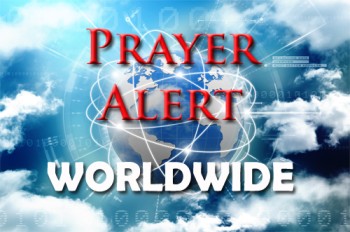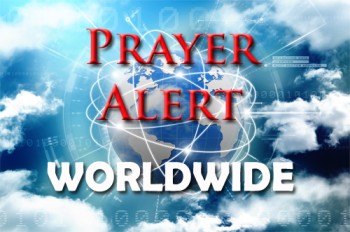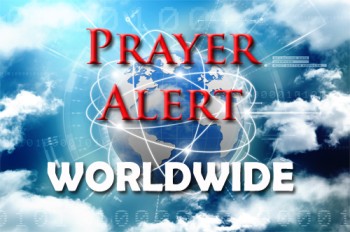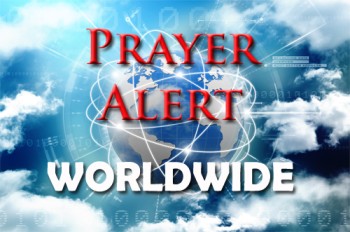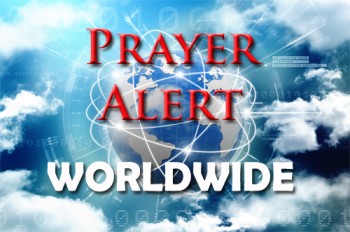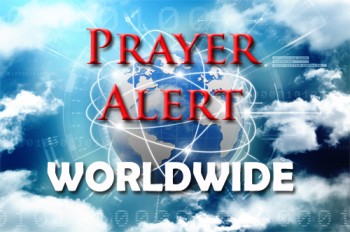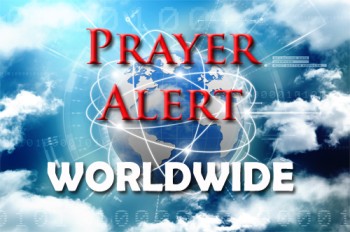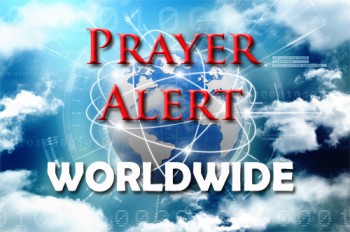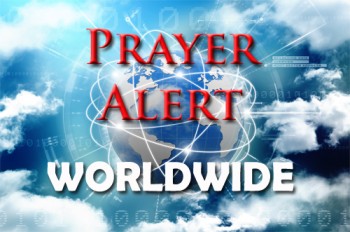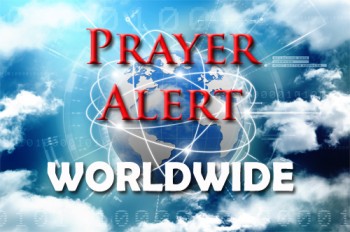Displaying items by tag: Nicolás Maduro
Venezuela: Maduro announces mass mobilisation in response to US threats
Nicolás Maduro has announced the mobilisation of more than four million civilian militia fighters, responding to what he describes as escalating threats from the USA. He pledged to arm and activate militias across the country, reinforcing national sovereignty against US actions. His remarks followed the Trump administration’s decision to double its bounty for his arrest to $50 million. While US officials accuse Maduro of leading a cocaine smuggling network known as the Cartel de los Soles, no direct evidence has been publicly presented. Venezuela’s militia system, created under former president Hugo Chávez, claims millions of members, though analysts question the figures. Meanwhile, the US military has dispatched three destroyers to the southern Caribbean as part of an expanded campaign against drug cartels in Latin America. The standoff reflects years of strained relations between Caracas and Washington, marked by sanctions, contested elections, and allegations of corruption.
Venezuela: opposition leader’s son-in-law kidnapped
Opposition leader Edmundo Gonzalez has reported the kidnapping of his son-in-law, Rafael Tudares, by hooded men in Caracas. He was intercepted while taking his children to school and remains missing. In the July 2024 presidential election, despite pre-election polls favoring Gonzalez, Venezuela’s electoral authority declared Maduro the winner without releasing detailed vote tallies, which fuelled protests across the country. In the crackdown that followed, 23 people were killed and 2,000 detained. Though many detainees have since been released, accusations of human rights abuses, including torture and arbitrary arrests, persist. Gonzalez, exiled in Spain and facing Venezuelan charges of conspiracy and document falsification, continues to challenge Maduro’s legitimacy. The international community remains divided on how to respond: one key question is what Donald Trump’s attitude will be. See
Venezuela: arrest warrant for opposition leader draws international condemnation
Venezuela’s decision to issue an arrest warrant for opposition leader Edmundo Gonzalez Urrutia has sparked international condemnation. Canada, the USA, and Brazil have all criticised Nicolás Maduro for his crackdown on opposition members following a contested presidential election in July. He was declared the winner with 52% of the vote but failed to release vote tallies. The opposition have presented records to back up their claims that Gonzalez won. When he refused to testify in an investigation, a warrant was issued for his arrest. Brazil, once supportive of Venezuela, expressed concerns and warned that his detention would be seen as politically motivated. The USA, long critical of Maduro, accused him of extreme measures to retain power. Meanwhile, Human Rights Watch has accused armed groups of killing 23 protesters after Maduro’s victory: see.
Venezuela: calls for transparency after disputed election result
Colombian president Gustavo Petro has urged a ‘transparent vote count’ in Venezuela amid mass protests following the disputed re-election of Nicolas Maduro. Petro, aiming to improve Colombia-Venezuela relations, emphasised the need for peace and professional international supervision to address the unrest and prevent further violence. He called on Maduro to honor Hugo Chavez’s legacy by ensuring a peaceful election process and accepting the true results. This follows the electoral council’s announcement of Maduro’s victory with 51% support over opposition candidate Edmundo Gonzalez’s 44%. The opposition claims fraud, asserting Gonzalez actually won. Protests in Caracas and other cities have met with police force, resulting in at least eleven deaths. International observers have expressed concerns, over both the election process and the crackdown on demonstrators.
Venezuela: government keeps arresting opponents
According to Venezuela’s government, there have been numerous conspiracies against president Nicolás Maduro in the last year. This has resulted in the arrest of over thirty individuals, including a prominent human rights lawyer and opposition campaign staff. Critics have denounced these arrests as efforts to suppress political opposition ahead of the upcoming presidential election in July. The attorney general has said the plots aimed at attacking military installations, assassinating Maduro, and destabilising the country. Maduro has also alleged that the US government is behind the plots to assassinate him. The government's crackdown extends to barring key opposition figures from running in the election, such as market advocate María Corina Machado, who remains determined to contest, hoping for international support. However, the government's lack of transparency in legal proceedings raises concerns about due process.
Nicaragua / Guyana border dispute is reignited
Guyana's vice-president, Bharrat Jagdeo, has issued a strong warning that his country will defend itself ‘by all and any means’ amid growing concerns that Venezuela's president Nicolás Maduro may attempt to annex a portion of Guyanese territory, particularly the mineral-rich Essequibo region. The current borders were agreed in 1899 after international arbitration. Guyana, a small nation, has historically relied on diplomacy and international law but is now exploring defence cooperation with allies, including the USA. Its army, with only 4,000 active personnel, would potentially face Venezuela's well-equipped, Russian-backed forces of over 350,000. Jagdeo also expressed concerns that the decision by the USA to ease sanctions on Venezuela may have emboldened Maduro in his threats. The border dispute has intensified since oil was discovered off Guyana's coast in 2015. Many believe that Maduro is seeking to shore up support domestically before the elections in 2024. Washington expects him to ensure a ‘free and fair’ vote as part of the sanction relief deal.
Venezuela: USA meets Maduro
With fears that the war in Ukraine could push global energy prices even higher, Washington recently met Venezuelan president Nicolás Maduro to discuss conditions for repealing the crippling US sanctions in place against his country. Washington, which broke off relations in 2019 over Maduro’s rigged elections and crackdowns on opposition protests, is reportedly demanding free and fair presidential elections and extensive reforms to the Venezuelan oil sector. Maduro, for his part, wants an end to the sanctions and to be readmitted to the SWIFT global financial platform. Venezuela is a close ally and partner of Russia. Some members of Congress have criticised any effort to rekindle relations, saying that efforts to isolate Putin should not boost other authoritarian leaders. Aside from the political whiplash of resuming oil trade, Venezuela’s oil fields have long suffered from mismanagement. Some industry analysts say it could be slow to increase supply. See
Venezuela: violence, Hezbollah, drug production
29 April was a day of chaos and violence after opposition leader Juan Guaidó called for a military uprising in Caracas and urged supporters to take to the streets to force his rival Nicolás Maduro from power. The US secretary of state, Mike Pompeo, said that Maduro had told America that he would leave Venezuela and live as an exile in Cuba and had an airplane on the tarmac, ready to leave: then Russia convinced him to stay. Recently Russian military personnel entered Venezuela to keep its sophisticated S-300 surface-to-air missiles operational despite its crumbling infrastructure and frequent power failures. Also Tareck El Aissami, Maduro’s closest confidant, is being investigated by the intelligence agency about helping Hezbollah militants into the country, partnering with a drug lord, and shielding 140 tons of chemicals to be used for cocaine production - making him a rich man as Venezuela spiralled into poverty. See
Venezuela: ‘Operation Blackout’?
Nationwide power cuts in Venezuela started on 7 March. The government of Nicolás Maduro blames US-backed saboteurs and snipers for the lack of water and electricity. Experts blame poor maintenance and a bush fire in the power grid. Russia backs Maduro’s version of events, claiming Washington is employing ‘techniques’ to remove him, including a man-made shutdown of energy facilities they called ‘Operation Blackout’. These allegations contradict the widespread consensus that Hugo Chávez’s authoritarian heir is responsible for an unprecedented electricity crisis that has deprived millions of citizens of light and water. Men are chopping down trees to take home to light fires for heat and light. When water stops flowing, people go to rivers and streams and collect muddy water to boil and reuse. There is dehydration, diarrhoea and a danger of more serious diseases. Opposition leader Juan Guaidó is calling people to take to the streets on 1 May for an enormous march to keep the pressure on the president to go. See
Colombia / Venezuela: crisis
Colombian charities and churches are delivering food and basic supplies to families in Cucuta, a border town in crisis. Poverty, lack of services, and lack of medical attention is driving families to knock on church doors. Church members are hosting displaced families. The strain is noticeable. As this situation continues to unfold they are asking people to pray for the injured and homeless. Meanwhile Venezuela expelled the German ambassador for helping opposition leader Juan Guaidó’s safe return to the country. Many other diplomats were at the airport to receive him, but so far only the German ambassador has been targeted. Germany, which recognises Mr Guaidó as interim president, said the expulsion will escalate tensions. The US is revoking visas of people linked to President Maduro to put more pressure on him to resign. More rallies on the streets against Maduro are due on Saturday. The next few days are critical. See
